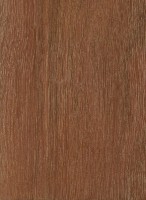 |
Common Name(s): Bulletwood, Massaranduba Scientific Name: Manilkara bidentata Distribution: Caribbean, Central and South America Tree Size: 100-150 ft (30-46 m) tall, 2-4 ft (.6-1.2 m) trunk diameter Average Dried Weight: 67 lbs/ft3 (1,080 kg/m3) Specific Gravity (Basic, 12% MC): .85, 1.08 Janka Hardness: 3,130 lbf (13,920 N) Modulus of Rupture: 27,870 lbf/in2 (192.2 MPa) Elastic Modulus: 3,344,000 lbf/in2 (23.06 GPa) Crushing Strength: 12,930 lbf/in2 (89.2 MPa) Shrinkage: Radial: 6.7%, Tangential: 9.4%, Volumetric: 16.8%, T/R Ratio: 1.4 |
Color/Appearance: Heartwood is a medium to dark reddish brown. Color tends to darken with age. Pale yellow sapwood is clearly differentiated from the heartwood, though not always sharply demarcated.
Grain/Texture: Grain straight to interlocked or wavy. Fine uniform texture with low natural luster.
Endgrain: Diffuse-porous; radial multiples of 2-5 common; medium to large pores, few; tyloses and mineral deposits common; parenchyma diffuse-in-aggregates, reticulate; narrow rays, spacing fairly close.
Rot Resistance: Rated as very durable, with good resistance to most insect attack. Susceptible to marine borers.
Workability: Despite its high density, Bulletwood generally produces good results with both hand and machine tools, though it does exhibit an above-average dulling effect on cutters. Responds well to steam-bending. Can pose challenges in gluing due to high density and oil content.
Odor: No characteristic odor.
Allergies/Toxicity: Although severe reactions are quite uncommon, Bulletwood has been reported to cause skin irritation. See the articles Wood Allergies and Toxicity and Wood Dust Safety for more information.
Pricing/Availability: Infrequently imported, Bulletwood is sometimes available as decking or flooring planks. Expect prices to be in the mid to upper range for an imported hardwood.
Sustainability: This wood species is not listed in the CITES Appendices or on the IUCN Red List of Threatened Species.
Common Uses: Heavy construction (within its natural range), decking, flooring, boatbuilding, bent parts, and turned objects.
Comments: Bulletwood is an incredibly strong, dense wood which has good durability in exterior applications.
Scans/Pictures: A special thanks to Steve Earis for providing the turned photo of this wood species.


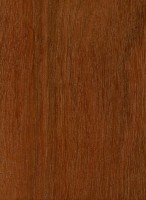
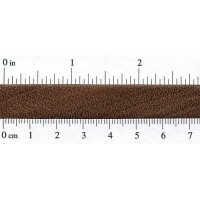
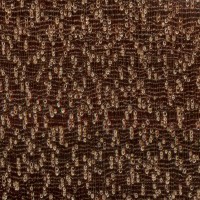
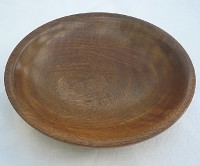
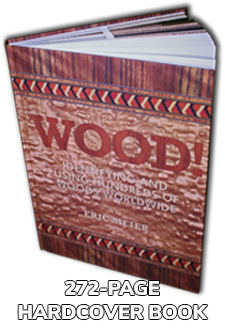

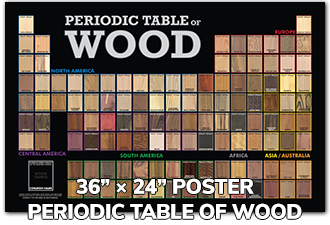
I purchased a 16″X16″X4″ B-grade block that was on sale. Definitely hard and heavy. When freshly cut it does have a pinkish color but unfortunately this fades over time to a medium brown tone. The smell is not bad and the dust settles quickly. I found that during carving with a rotary carver the grain is very picky about the cutting direction. With a double-cut carbide burr it was hard to get a smooth finish unless you are very mindful of the grain direction. I expect it makes a great decking material. It can be carved reasonably well with power… Read more »
I’m in California and which has Wildland Urban Interface (WUI) requirements for fire spread. I want to build a deck and surface it with Massaranduba. To obtain a building permit, the material must either be listed on the CalFire building material list, or have test results from an ASTM E84 or UL 723 ignition resistance testing. I’ve scoured the web looking for test results and haven’t found any. Any help is greatly appreciated
I purchased a home with a very large deck made from this wood (according to the original builder/owner whose family owns a chain of lumber stores!). Unfortunately, subsequent owners have painted over the decking; some of the boards have started to warp a bit. About 75% of the deck is under a roof while the remainder has been exposed directly to the elements. It was installed 20 years ago. How can I safely remove the paint and restore this type of wood?
I had a similar situation with my Ipe front porch having been painted a lovely shade of shit brown by the previous owner. Idiots… I unscrewed every board, 4/5 at a time, ran them through my helical cutter-head planer, removing approx 1/32”, screwed then back in place and applied Ipe Oil. That’s probably the only reasonable solution…
Unfortunately, I don’t have access to that type of a tool…and the deck is huge. I think the only practical solution for me will be a chemical stripper…or a lot of hand sanding!
IMO a chemical stripper would be the absolute last option. A $1500 planer with a helical head would be so much quicker and easier than stripping and sanding. It would pay for itself many times over, especially if this deck is that large. Also you should keep in mind that if this deck is for example, 20 x 30ft. then you’re talking about multiple tens of thousands of dollars in material cost alone to replace it if something goes wrong with chemical stripping. My time is not THAT valuable but I’m pretty sure it wouldn’t be worth the time it… Read more »
I managed to snatch some of it all the way in Romania at a good price. Could it be used for guitar making? I know any wood can work for an electric guitar body, but I’m thinking about making a multi-laminate neck with mahogany or steam bent sides for an acoustic. Would that kind of neck be too heavy?
I think it has great applications for making instruments, though in regards to sound, it’s not as good as Ipe. Take a look at this research article… It might interest you.
https://www.researchgate.net/publication/268267267_The_Potential_of_Ipe_Handroanthus_SPP_and_Macaranduba_Manilkara_SPP_Woods_in_the_manufacture_of_bows_for_string_instruments
Can it be used as a cutting board?
Yes, great option
Picked up a piece of wood that was being used for deck construction in Brazil. I was told it is Massaranduba. It is wonderful to work with on the lathe. The finish is simply friction polish for a few seconds on the lathe
That is not Massaranduba, Its Muiracatiara, also very hard and dense but much easier to work with
In the article it states there may be issues gluing up boards. Is there a specific glue that might work better with this product and its natural oils?
Just make sure you sand a little and clean with mineral spirits right before adding the glue. I used Tite 3 and it’s a very strong bond after years
I made this box out of Massaranduba, and drenched it with normal kitchen linseed oil
oil based finish seems to work fine on the windows i made from this timber.
I am reforesting in Costa Rica. Any idea where I can source the seeds?
Where in Costa Rica? I’m right here in the central valley. Níspero seems like an odd species to plant for commercial purposes so I assume your concerns are environmental. You’d have some more luck looking for the local public universities’ own botanists, TEC and UCR have big groups dedicated to forestry and reforestation.
Otherwise go look for the trees in the pacific coast, there are still plenty, and you should be able to obtain a seed.
In Belize you can find as many seeds as you want. These trees grow along rivers and creeks, there are just plenty of them
What product would you recommend to seal the Macaranduba wood?
Nitrocellulose based sanding sealer works best, but you need a spray gun. Other options: water based sealer, shellac. I wouldn’t recommend oil based sealer as that might conflict with the natural oils and make a gooey mess.
Is this wood good to make furniture
It’s amazing one it’s done, just harder to work with than more typical furniture wood.
Los Quetzales eco lodge in the highlands in Panama has locally made furniture – most with nispero – the chairs are HEAVY.
https://www.losquetzales.com/
The reception counrter, the last time I vitited at least, was a single slab, 8cm thick, of purpleheart